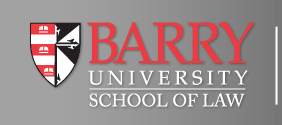Aims & Scope
AIMS
The principal goals and purposes of the Environmental and Earth Law Journal are to publish research by legal scholars and to furnish valuable educational experiences for the student members of the journal. The journal shall strive to publish articles that will be valuable research tools for students, attorneys, judges, and legal scholars, and to provide commentary on issues that will facilitate growth and development of our specialized field of ecocentric law.
The student members’ participation in the writing assignments and the editorial process shall be designed to improve writing skills and research techniques. Working for the journal also strengthens a student’s ability to analyze problems in unfamiliar areas of the law. Finally, the self-discipline and analytical proficiency needed to succeed while editing for the journal proves invaluable to students after leaving law school.
SCOPE
Environmental law is inherently very broad, touching on almost all areas of legal scholarship. However, the Environmental and Earth Law Journal focuses on issues and problems which are both unique to environmental jurisprudence and social and ecological justice which have broad and far reaching implications.
Because the Environmental and Earth Law Journal is published electronically we can facilitate dialogue and provide an international forum for enlightened discourse on a range of environmental issues impacting our society and world. By combining the cutting edge technology of the internet with legal scholarship, Environmental and Earth Law Journal ensures both rapid publication and a unique medium for presentation.
Earth Jurisprudence and Environmental Justice are two pillars in Barry University’s development of a sustainable future. In 2010, the journal dedicated its first issue to Father Thomas Berry, an inspirational leader in the earth jurisprudence movement. In addition, the journal receives guidance and support from the Center for Earth Jurisprudence, an organization which has helped develop this field of legal scholarship.
Additionally, Barry University has fostered a continued awareness of Environmental Justice through its annual summit. The 2010 summit, Collaborating to Achieve Environmental Justice, focused on the progress made and continuing need for collaboration between affected persons, attorneys, and others in the field. The keynote address was presented by Dr. Robert Bullard, distinguished Professor of Sociology and Director of the Environmental Justice Resource Center at Clark Atlantic University, who has been called the “Father of Environmental Justice.”
In essence, Barry Law’s Environmental and Earth Law Journal seeks to become the leading publication in its niche field and to be the voice of authority for these relatively new areas of legal practice and theory.
